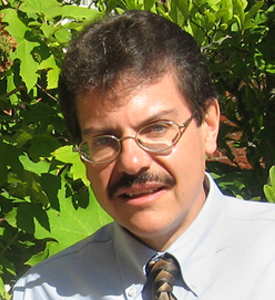Directory
Roger Reeb
Professor; Hanley Sustainability Institute Faculty Affiliate
Full-Time Faculty
College of Arts and Sciences: Psychology
Degrees
- Ph.D., Virginia Commonwealth University, 1993
Profile
Roger N. Reeb is a Professor of Psychology, a Faculty Research fellow with the Human Rights Center and a Faculty Affiliate with the Hanley Sustainability Institute at the University of Dayton, where he previously held positions of Director of Graduate Programs in Psychology (2006-14) and Roesch Endowed Chair in the Social Sciences (2014-18).
Dr. Reeb received his Ph.D. in clinical psychology from Virginia Commonwealth University, after completing the Brown University Internship Program.
Dr. Reeb received numerous awards at the University of Dayton (Alumni Award in Teaching; Outstanding Faculty Service - Learning Award; Service-Learning Faculty Research Award). He also received awards from the American Psychological Association (Dissertation Award; Springer Award for Excellence in Research in Rehabilitation Psychology, Division 22), and he served as a Work Group Member for the American Psychological Association’s Citizen Psychologist Initiative.
Dr. Reeb is a Fellow in the Midwestern Psychological Association. He was inducted as a Member in the Academy of Community Engagement Scholarship (ACES), the mission of which is to “provide expertise to policymakers, higher education institutions and organizations, community leaders and national and international entities interested in addressing complex societal issues through the effective engagement of higher education with community members and organizations.”
With approximately 50 publications and approximately 120 conference presentations, Dr. Reeb co-authored Service-Learning in Psychology: Enhancing Education for the Public Good, published Community Action Research: Benefits to Community Members and Service Providers, and edited a special issue on service-learning research for the American Journal of Community Psychology. Dr. Reeb conducts participatory community action research, with special interests in homelessness, service-learning pedagogy (assessment of student and community outcomes), homelessness, human rights and sustainability education, psychopathology, and advocacy. With a specialization in assessment, he developed, validated and published the Community Service Self-Efficacy Scale, which is a commonly used measure in service-learning research.
He has served on the Editorial Board for a number of journals. At present, he serves as an Associate Editor for the Journal of Prevention & Intervention in the Community, for which he is currently serving as Guest Editor for two different special issues (“Community-Based Research on Homelessness” and “Positive Psychology Concepts in Community Psychology”). Dr. Reeb, a licensed clinical psychologist, has served the community in numerous capacities, such as serving as a long-term Board Member for the National Alliance on Mental Illness Board (Montgomery County, Ohio).
Faculty perspective
"As a faculty member at the University of Dayton, I have a scientist-practitioner perspective, and I attempt to integrate my teaching, research, and service activities whenever possible. Given the scientist-practitioner perspective, I am enthusiastic about the application of theory and research to practice in the community. I also have a biopsychosocial perspective, meaning that I am interested in the ways in which biological factors, psychological factors, and social/community factors interact in contributing to the development and course of health problems (mental and physical) in the community.
I believe that the scientist-practitioner and biopsychosocial perspectives facilitate my attempts to teach and conduct research in ways that support the Mission of the University of Dayton. I enjoy the opportunities at UD to collaborate with students in research and/or service-learning projects, and some of my publications and conference presentations are based on these collaborative efforts."
Research interests
- Stress and coping
- Self-efficacy theory
- Psychopathology, assessment
- Health/pediatric psychology
- Program evaluation of service-learning programs and other community-oriented projects
Selected publications
Reeb, R.N. (2000). "Classification and diagnosis of psychopathology: Conceptual foundations." Journal of Psychological Practice, 6, 3-18.
Altum, S., Reeb, R.N. (1999). "Are measures of self-efficacy reactive?" Behavior Therapy, 30, 697-704.
Reeb, R.N., Sammon, J.A., & Isackson, N.L. (1999). "Clinical application of the service-learning model in psychology: Evidence of educational and clinical benefits." Prevention and Intervention in the Community, 18, 65-82.
Reeb, R.N., Katsuyama, R.M., Sammon, J.A., & Yoder, D.S. (1998). "The Community Service Self-Efficacy Scale: Evidence of reliability, construct validity, and pragmatic utility." Michigan Journal of Community Service Learning, 4, 48-57.
